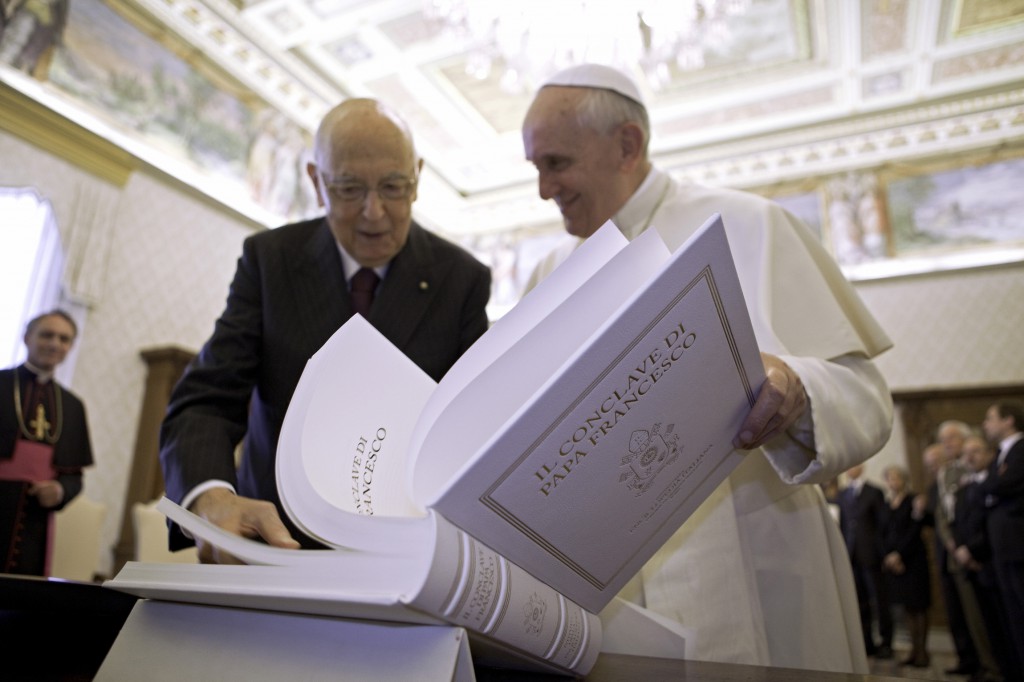
By Carol Glatz
Religious freedom is talked about more than it is protected, Pope Francis said.
“The serious violations inflicted on this basic right are causes of serious concern,” and the world’s nations must act together to uphold “the intangible dignity of the human person against every attack,” he said.
The pope made his comments during an audience with Italian President Giorgio Napolitano at the Vatican June 8.
The pope said the cooperation that exists between church and state in Italy is built on the daily interaction and rapport between government officials and Catholics, whose main aim is always the promotion of “the interests of the people and society.”
He noted that 2013 marked the 1,700th anniversary of the Edict of Milan. This proclamation of tolerance of Christianity throughout the Roman Empire is seen by many, he said, “as a symbol of the first affirmation of the principle of religious freedom.”
However, today “religious freedom is more often declared than achieved,” the pope said.
Religious liberty, in fact, is frequently violated and finds itself “subjected to various kinds of threats,” the pope said. “It’s the duty of everyone to defend religious freedom and promote it for all people.”
Also, everyone benefits when people together safeguard this “moral” right as it “guarantees the growth and development of the whole community,” the pope said.
Pope Francis also told Napolitano that the “profound and persistent global crisis” in the world today worsens current problems, especially for the weaker members of society.
But the most “worrying” problems today include the weakening of the family and social ties, falling birthrates, the rule of profit in the work world and insufficient attention being paid to younger generations and their education.
In order to face the crisis, he said, “it is fundamental to guarantee and develop” democratic institutions, which are precisely an arena where lay Catholics can make “critical, just and creative” contributions to society.
Pope Francis said it was “urgent” to help foster, especially among young people, a new way of looking at political involvement.
There needs to be “a culture of encounter” in which “believers and nonbelievers may collaborate together to promote a world where injustices can be overcome and every person may be welcomed and may contribute to the common good,” he said.
“We Catholics have the duty to dedicate ourselves even more to a serious journey of spiritual conversion so that every day we get closer to the Gospel,” which calls on the faithful to offer “concrete and effective service to people and society.” – CNS